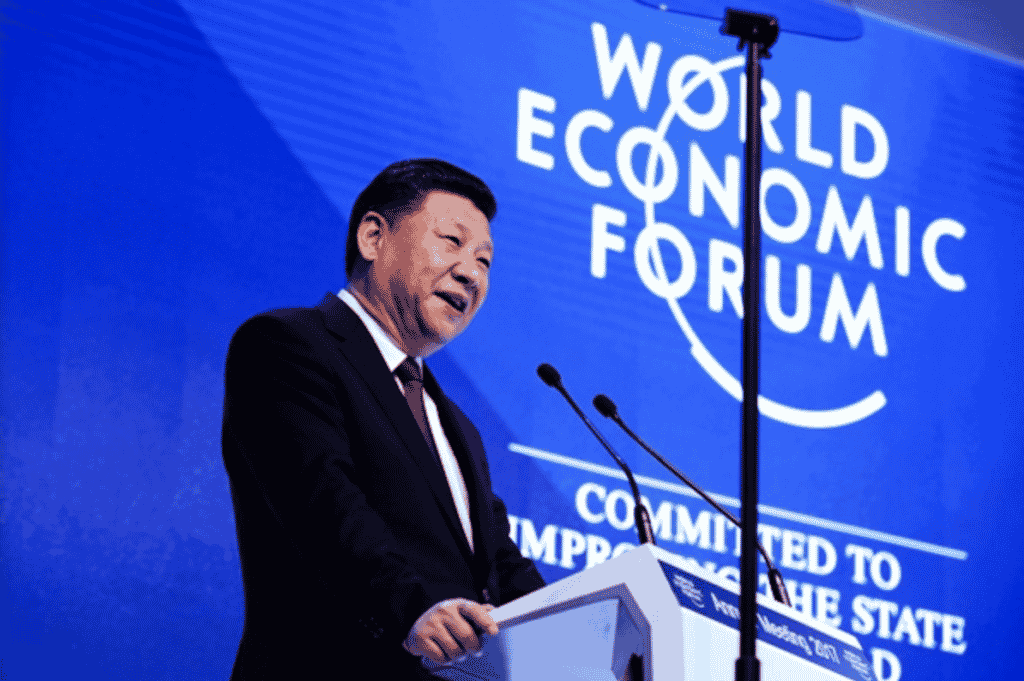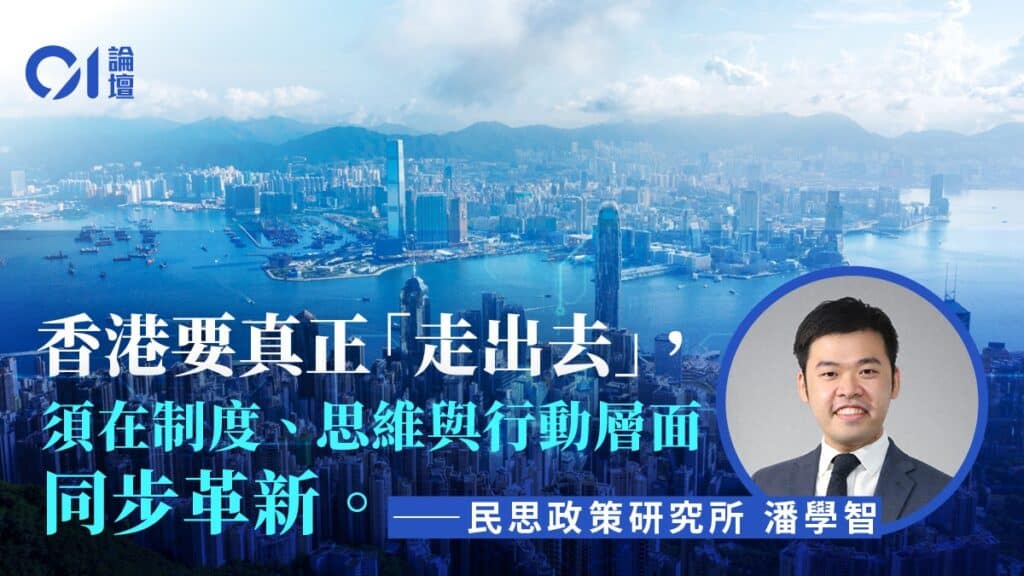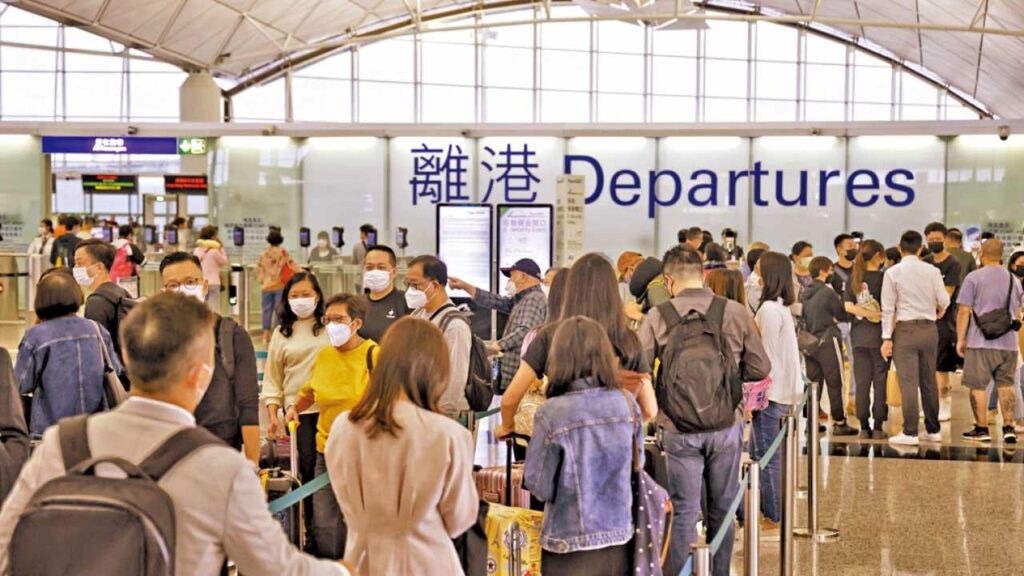Sino-US trade relations have once again worried the market after US President Trump took office. He once threatened to impose tariffs of 45% on Chinese imported goods. Initially, comments suspected that his tough attitude was just a populist slogan for posturing. However, given that he quickly announced his complete abandonment of the TPP, implemented a vigorous immigration ban, and recently proposed new taxes on Mexican goods, the new US government's aggressive China policy may not be just to gain bargaining chips. China and the United States are Hong Kong's largest trading partners, accounting for 51% and 7% of total trade respectively. Trade friction between the two countries is looming, and it is impossible for Hong Kong to remain immune. Regarding the future development of the situation, two extreme scenarios of optimism and pessimism can be deduced to consider how Hong Kong should handle itself.
The optimistic scenario is that the United States will move toward isolation, prompting China to further open up and gradually replace the United States' leadership in global economic governance. Trump advocates a number of isolation policies, which will inevitably weaken the United States' leading role in promoting free trade and formulating global governance rules.
On the contrary, at the annual meeting of the World Economic Forum, Xi Jinping praised globalization as a strong driving force for world economic growth and tried to interpret China as a global citizen committed to promoting international integration. Coupled with Brexit, China is expected to fill the space vacated by the isolation of Europe and the United States, strive for a voice and decision-making power commensurate with its economic status in the international community, reshape the global governance landscape, and maintain the international economic order. However, the stagnation of globalization may reduce the necessity for China to continue to open up, giving domestic conservative forces a reason to slow down the pace of opening up and avoid the risk of accelerating reforms. Furthermore, it is not easy to overcome the increasingly contradictory geopolitics and settle the strategic competition among major powers. China's participation in global governance and international order is still full of challenges.
China relies on Hong Kong to exert soft power
The pessimistic scenario is that Trump provokes disputes that lead to the outbreak of the Sino-US trade war and even the collapse of global political and economic governance. The trade war may be implemented by imposing anti-dumping and countervailing tariffs, returning production processes to the United States. It may also tighten technical standards such as technology, safety, and hygiene, and raise the import threshold for Chinese goods. Bilateral trade imbalance is the trigger point for igniting war; however, even if the United States records huge trade deficits every year, it does not mean that the United States gains nothing from trade. China's exports of goods to the United States are mainly electronic consumer products and manufacturing, which are low- and medium-value-added industries; while the United States' exports of goods to China are mainly aircraft manufacturing and high-tech, which are high-value-added industries. Moreover, many American manufacturers have moved their production lines to China, and any measures to restrict "Made in China" will also affect American companies. Because Sino-US trade relations are inseparable, launching a large-scale trade war is not in the interests of both parties. However, as anti-globalization and protectionism rise, various trade frictions are believed to become more intense.
If the world's political and economic situation develops in an optimistic direction, that is, the isolationist policies of Europe and the United States drive China to further open up, Hong Kong will be the best international platform for China to promote foreign trade and exert its soft power. RMB internationalization is an important strategy for China to enhance its influence in the international monetary system. The RMB is the sixth-ranked payment currency in the world. After being included in the Special Drawing Rights (SDR) currency basket by the International Monetary Fund, it has officially become an international investment and reserve currency. With the cooperation of national policies, Hong Kong's offshore RMB business has gradually developed into a cross-border payment system from an initial clearing mechanism that facilitated residents of both places.
As of 2016, Hong Kong has the world's largest offshore RMB capital pool with RMB 546.7 billion in deposits. At the same time, RMB clearing systems have emerged in Singapore, London, Frankfurt and other places. With its status as an international financial center, Hong Kong has created favorable conditions for RMB internationalization. At the same time, it must also cope with challenges from other offshore markets and consolidate its role as a global offshore RMB business hub.
The competition among global international financial centers is also a contest of soft power. To maintain Hong Kong's competitiveness on the international stage, hardware alone is not enough. It is also necessary to maintain its advantages in financial infrastructure, institutional culture and professional talents. As Sino-foreign economic cooperation projects are launched under the concept of "One Belt, One Road", Hong Kong can provide international financing channels other than the AIIB and Silk Road Fund to raise funds from public offerings, bond issuances, bank loans and private equity investments. In the face of a possible increase in commercial disputes, Hong Kong has an internationally recognized arbitration mechanism that brings confidence to investors. The Hong Kong International Arbitration Center has set up a representative office in the Shanghai Free Trade Zone to introduce Hong Kong's excellent legal services to the mainland, protect the rights and interests of mainland and foreign enterprises in cross-border cooperation, and prove that China is willing to abide by international rules. For Hong Kong to become the first choice for multinational companies to set up treasury centers, a sound financial regulatory system, a suitable tax framework and first-class professional services are indispensable. It is also necessary to ensure that these intangible capitals for developing the headquarters economy will not depreciate in value.
Under economic globalization, education and culture are both places where soft power can be exerted. If any country wants to participate in global affairs, it needs talents who understand both domestic conditions and international rules. "Times Higher Education" (THE) ranks the world's most international universities, with the University of Hong Kong ranking third in the world, and the Chinese University also ranking 27th. This shows that the degree of internationalization of Hong Kong's higher education institutions is among the best in the world and helps to cultivate Broad international vision and diversified knowledge background. Hong Kong is an international metropolis, and its cultural industry is based on the local market and has an international perspective. Take the film industry as an example. The "Hollywood Oriental" market is booming. Overseas film producers use Hong Kong as their base to co-produce films to enter the mainland box office. Filmmakers have an international understanding of culture and art, can produce works that attract Chinese and foreign audiences, radiate influence to Chinese-speaking regions and even the world, enhance the outside world's understanding of China, and improve China's international image.
Leading China to integrate into the international system
If the world's political and economic situation develops in a pessimistic direction, that is, if Trump builds barriers and a trade war breaks out between China and the United States, Hong Kong must look for opportunities in the reorganization of the global value chain to break through the United States' containment policy against China. In recent years, China's labor costs have skyrocketed, and many companies have considered moving their factories to other lower-cost countries, especially countries along the "Belt and Road". For example, Foxconn has set up a factory in India to assemble Apple mobile phones. Trade protection measures against China will speed up the process of restructuring the regional supply chain. Hong Kong companies setting up factories on the mainland can move secondary production processes or final assembly links to Southeast Asia to meet the rules of origin and reduce tariff costs; they can also move some high-end processes back to Hong Kong to promote Hong Kong's re-industrialization, including using Lok Ma Chau in the future In the Innovation and Technology Park in the Loop, exported goods can be branded "Made in Hong Kong" and enjoy tax incentives.
In addition to promoting the reorganization of global value chains, Hong Kong can also help mainland companies explore new markets to avoid US restrictions. Hong Kong is the primary platform for Chinese enterprises to “go global”, and China’s “One Belt, One Road” initiative has brought many business opportunities to Hong Kong. In 2016, the value of Hong Kong's re-exports to India reached HK$116.2 billion. Compared with 2012 before the "One Belt, One Road" initiative was announced, India has surpassed Japan, Taiwan and Germany to become Hong Kong's third largest market. The value of Hong Kong's re-exports to Vietnam also reached HK$70.2 billion, surpassing Germany, Singapore, South Korea and the United Kingdom in four years, becoming Hong Kong's sixth largest market.
Finally, Hong Kong can help China integrate with the highest standards of international trade rules, thereby reducing trade conflicts, maintaining a stable business environment, and increasing China’s voice in global economic and trade governance. China's foreign trade has failed to comply with high standards of trade and investment rules, which has caused China to be involved in many trade disputes. It has also been criticized by Europe and the United States. Criticisms include being unable to eliminate market access barriers and treat foreign investment fairly. Trump's cabinet even criticized China He is the biggest "cheater" in the WTO. Many trade agreements, such as the TPP, have high requirements on labor rights, environmental protection, intellectual property rights, and market access, which indirectly exclude China.
Hong Kong has been practicing these high standards for a long time. It is also a member of the WTO and can independently participate in international trade negotiations. The accumulated experience plays a leading role. The "Guangdong Agreement" under the CEPA framework is piloted and is China's first free trade agreement designed based on a negative list and pre-establishment national treatment. China’s four free trade zones and the bilateral investment treaty (BIT) still under negotiation between China and the United States also adopt the same management system. With reference to Hong Kong’s experience, as a laboratory for China to engage with the international market, actively fulfilling international responsibilities will be the only way for China to participate in rule-making and lead global political and economic governance.
The global economic and trade situation may not simply develop according to the above single optimistic or pessimistic scenario. The two optimistic and pessimistic scenarios may be mixed or alternately staged in various forms: a full-scale trade war between China and the United States may not break out, but serious trade friction is very likely to occur; Global economic and trade governance may not collapse, but there will be a certain degree of chaos; China cannot quickly replace the United States' leadership in global economic and trade governance, but it will strive to strengthen its voice in the international community and, at the same time, be committed to participating in global governance amid the controversy over trade frictions. , gradually filling the vacuum vacated after the United States became isolated. The development of history is often full of twists and turns. When there is no way out, opportunities arise. Regardless of whether the new situation brings good times or bad, Hong Kong needs to cultivate soft power in the process of economic globalization, explore business opportunities in the reorganization of global value chains, lead China's integration into the international system, seize opportunities, and play its unique and irreplaceable role.
Song Enrong is a visiting professor of the Department of Economics of the Chinese University of Hong Kong and deputy director of the Shanghai-Hong Kong Development Joint Research Institute of the Chinese University of Hong Kong.
Pan Xuezhi is a research assistant at the Shanghai-Hong Kong Development Joint Institute of the Chinese University of Hong Kong.



